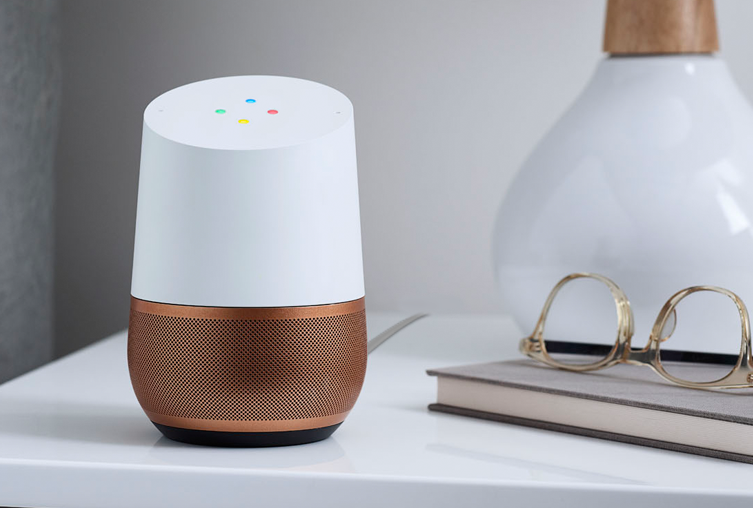Disrupting the PPC Model - Google’s First Attempt at Advertising on Google Home
Last Thursday, Google provided an unsolicited ad to Google Home users, testing, for the first time, its ability to run ads on its smart speaker. Google Home users reported asking their device about their schedule and along with the weather, news updates, and traffic, the speaker played a 17-second promotion of the new movie Beauty and the Beast. Users immediately took notice of the sly ad insertion taking to social media to relay their frustrations, calling it intrusive and disruptive.

But among the backlash, Google’s attempt at advertising should come as no surprise. It is after all an advertising search engine. Having cornered the market by monetizing the point-and-click experience, Google will naturally do the same with its voice-first device. However, as this trial illustrated, advertising on a user interface without a screen poses a challenge. Search on a computer, tablet, or phone, provides the consumer the ability to swipe past and ignore sponsored ads without fully disrupting the user experience. Now, imagine if you were locked out of your computer for 30 seconds while an ad played on your entire screen—you would feel captive. This is comparable to the ad experience on a voice-first device.
For voice-first technology to be able to monetize through advertising, it must do it in a compelling way that does not disrupt the user experience and provides relevance. Such as providing an ad insertion on an Italian restaurant when a consumer’s voice query relates to searching for nearby Italian restaurants. In an International Advertising Bureau survey of 1,200 U.S. adults, 65% of those who own IoT devices said they are willing to see ads on their IoT screens. Players in the voice-first market will need to balance between consumers’ advertising tolerance and monetization of search. If done correctly, voice-first technology has the potential to disrupt the pay-per-click model. Smartphones only expanded the pie in monetizing search from computers with the help of sponsored blue links, but with voice interfaces those links disappear altogether.
Voice technologies may disrupt the PPC (pay-per-click) business model in the following ways:
- Increase in top search links’ importance – The majority of clicks on a search page are attributed to the highest search results, with the top sponsored links getting the most attention and dropping in consideration as consumers’ eyes scan further down the page. With voice ads, consumers may be less patient and tolerant since ad consumption may move at a slower pace compared to quickly scanning a page on a screen. Smart speakers that spout search results will have fewer chances at a consumer’s attention as the list continues to drill on. This will make the top voice result even more important compared to the top result on a graphical display.
- Increased personalization – As voice-based personal assistants have the power of the user’s personal information, voice ads have the potential to be more personal and contextual to the user’s needs. Improved relevance will result in better responses to the ad.
- Predictive ad insertions – With machine learning algorithms, voice technologies have the ability to learn a consumer’s pattern and habits. Ads may then be launched at the most opportune times during a consumer’s daily routine, making the ad active rather than responsive.
Google’s attempt at advertising on its smart speaker was short-lived; the ad launched Thursday morning only to have it disappear by that afternoon. Still, Google displayed an important move in the voice-first market. Though, Google responded by not quite calling it an ad, releasing this statement last Thursday:
"This wasn’t intended to be an ad. What’s circulating online was a part of our My Day feature, where after providing helpful information about your day, we sometimes call out timely content. We’re continuing to experiment with new ways to surface unique content for users and we could have done better in this case."
Advertisement or not (though it sure felt like one), Google has demonstrated a lesson and opportunity for voice technology stakeholders in the race to monetization.
For more information on voice technologies, Parks Associates’ industry report, Voice Assistants and Technologies: Ecosystem and Market Leaders, assesses leading personal assistant devices, analyzes business models, evaluates the impact of voice control on various market segments, presents consumer preferences and usage for voice interfaces, and forecasts sales of smart speakers with personal assistants through 2021.
Further Reading:
Next: Consumer Interest in Drones is Taking Flight
Previous: The Potential of Voice – The New Age Interface
Comments
-
Be the first to leave a comment.
Post a Comment
Have a comment? Login or create an account to start a discussion.


